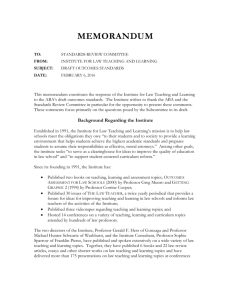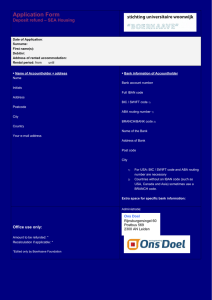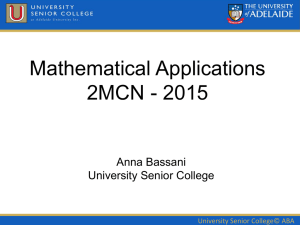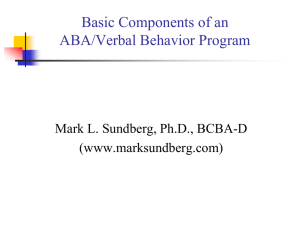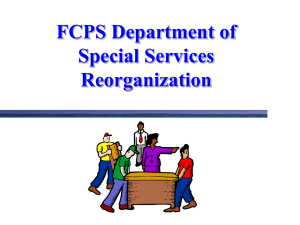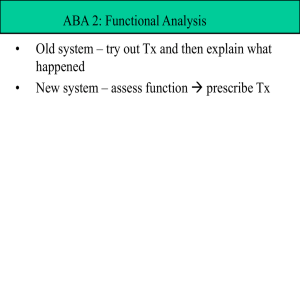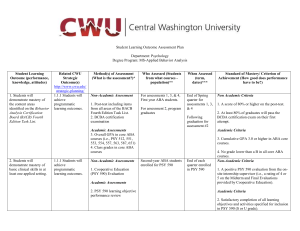11-7 - American Bar Association
advertisement
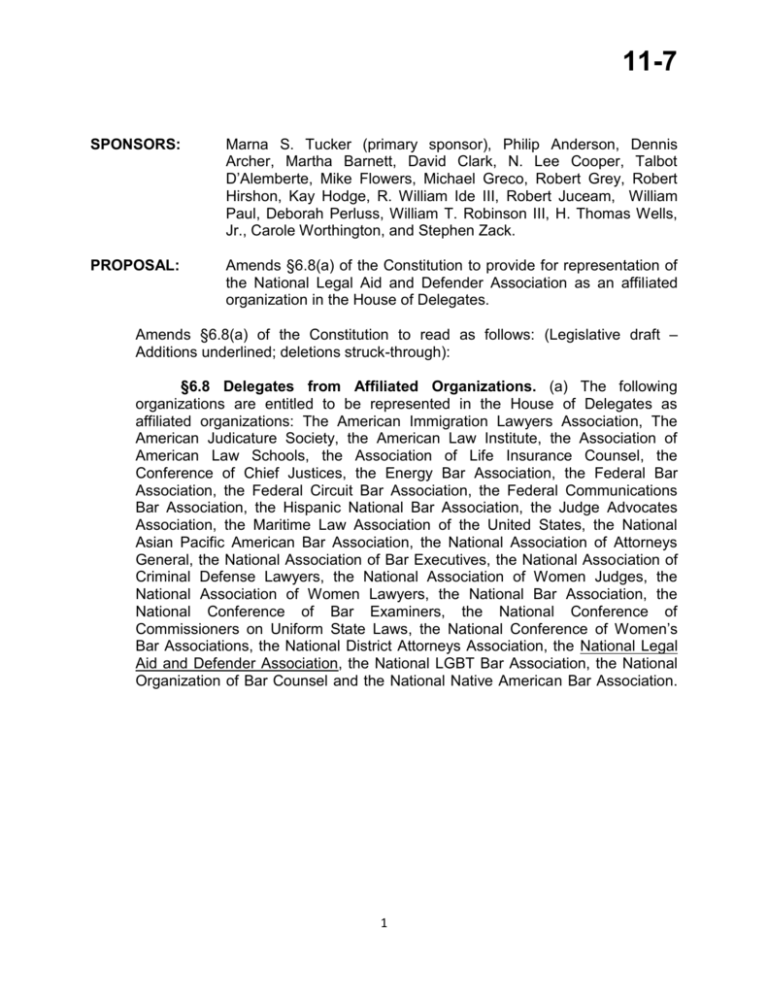
11-7 SPONSORS: Marna S. Tucker (primary sponsor), Philip Anderson, Dennis Archer, Martha Barnett, David Clark, N. Lee Cooper, Talbot D’Alemberte, Mike Flowers, Michael Greco, Robert Grey, Robert Hirshon, Kay Hodge, R. William Ide III, Robert Juceam, William Paul, Deborah Perluss, William T. Robinson III, H. Thomas Wells, Jr., Carole Worthington, and Stephen Zack. PROPOSAL: Amends §6.8(a) of the Constitution to provide for representation of the National Legal Aid and Defender Association as an affiliated organization in the House of Delegates. Amends §6.8(a) of the Constitution to read as follows: (Legislative draft – Additions underlined; deletions struck-through): §6.8 Delegates from Affiliated Organizations. (a) The following organizations are entitled to be represented in the House of Delegates as affiliated organizations: The American Immigration Lawyers Association, The American Judicature Society, the American Law Institute, the Association of American Law Schools, the Association of Life Insurance Counsel, the Conference of Chief Justices, the Energy Bar Association, the Federal Bar Association, the Federal Circuit Bar Association, the Federal Communications Bar Association, the Hispanic National Bar Association, the Judge Advocates Association, the Maritime Law Association of the United States, the National Asian Pacific American Bar Association, the National Association of Attorneys General, the National Association of Bar Executives, the National Association of Criminal Defense Lawyers, the National Association of Women Judges, the National Association of Women Lawyers, the National Bar Association, the National Conference of Bar Examiners, the National Conference of Commissioners on Uniform State Laws, the National Conference of Women’s Bar Associations, the National District Attorneys Association, the National Legal Aid and Defender Association, the National LGBT Bar Association, the National Organization of Bar Counsel and the National Native American Bar Association. 1 11-7 REPORT The purpose of this amendment is to reinstate the National Legal Aid and Defender Association (NLADA) as an affiliate organization with representation in the House of Delegates. NLADA has been an affiliate member of the House and an active participant and contributor to the House and to the ABA's policy development since 1956. Due to unforeseen circumstances arising close in time to House of Delegate meetings, NLADA's representative to the House was unable to attend three consecutive meetings. NLADA has now put procedures in place to ensure that it will be represented in all House of Delegates meetings going forward. Those procedures include: (1.) advance written notification and justification for any absence from the representative submitted to the NLADA President; (2) a presumption of replacement of the representative if two consecutive meetings are missed; and (3.) designating an alternate for each House of Delegates meeting who shall remain available (“on call”) in the event the representative is unable to attend a meeting. NLADA will notify appropriate ABA leadership and staff should a substitution become necessary. NLADA, founded in 1911, is America's oldest and largest nonprofit association of legal programs and professionals devoted to ensuring the delivery of legal services to those who cannot afford counsel. NLADA's members are comprised of civil legal aid and public defense attorneys, leaders, advocates, organizations and individuals who support and work for equal justice in America. Over 100 years ago NLADA was charged with two overarching goals: to work to improve and expand access to counsel for low income people, and to do so in partnership with the private bar. Those mandates have been achieved to a significant degree through NLADA's long and distinguished relationship with the ABA. In the 1940's NLADA was a part of the ABA and in 1945 the ABA appropriated funds to promote the organization (then known as The National Association of Legal Aid Organizations) through state and local bar associations. NLADA's mission, members and work are directly linked to the ABA goal of “assuring meaningful access to justice for all persons” and to four ABA legislative priorities: access to legal services; criminal justice system improvements; eliminating discrimination; and immigration. Its members and leadership have sat and presently sit on the ABA's Standing Committee on Legal Aid and Indigent Defendants, the Standing Committee on Pro Bono and Public Service, the Criminal Justice Section's Council and the Indigent Defense Advisory Group. At the same time, many of the ABA's current and past leaders, including former ABA presidents, have also served in leadership positions at NLADA. The ABA and NLADA worked together to create the Legal Services Corporation and expand public defense in America, and have collaborated to produce the Standards for the Provision of Civil Legal Aid, the Ten Principles of a Public Defense Delivery System, the Standards for 1 11-7 the Delivery of Public Defense Services, the Standards for Representation in Death Penalty Cases and other critical policy resolutions adopted by the ABA House. The ABA and NLADA continue to work closely on securing adequate funding for legal aid and public defense. In 1999, the ABA and NLADA partnered to produce the first Equal Justice Conference, which convenes pro bono and legal aid advocates nationwide, and that partnership continues to produce the profession’s largest legal aid and pro bono gathering. Our collaboration on the State Planning Assistance Network has spawned Access to Justice Commissions around the country. When NLADA celebrated its Centennial in 2011, the organization highlighted the two Associations' long-term relationship by asking the ABA President to be Honorary Chairman of the NLADA Board when his term as ABA President had ended. In sum, the close alliance between our organizations has been and will be beneficial not only for the ABA, NLADA and our respective members, but also in securing access to justice in America. NLADA's role in the House of Delegates not only brings the experience and knowledge of the legal aid and public defender community to the deliberations of the House, it also advances the ABA's commitment to a more diverse society and legal profession. Like the ABA, NLADA has a strong commitment to diversity and inclusion. The clients served by our member institutions are often women, people of color, the disabled, and the elderly. Our institutional members include some of the most diverse legal staffs in our profession. For more than a century, NLADA and the ABA have worked together to insure fairness, access, and justice for the most disadvantaged in our nation. It is essential that that engagement continue, particularly in the House of Delegates. 2
